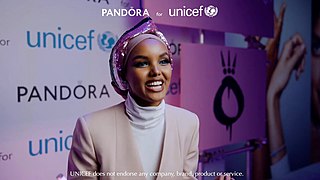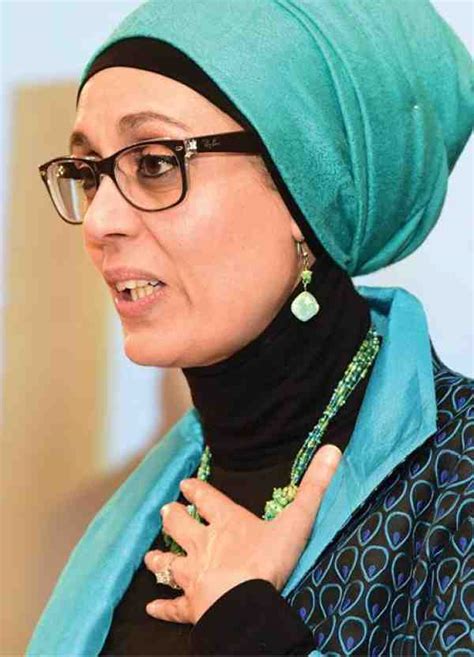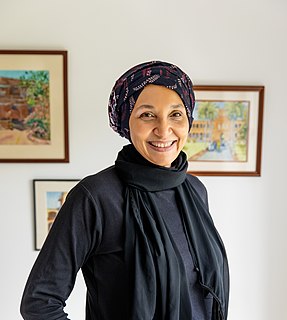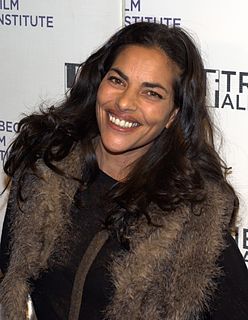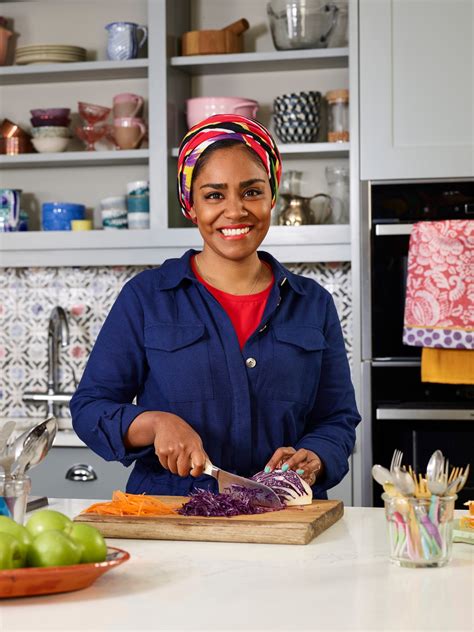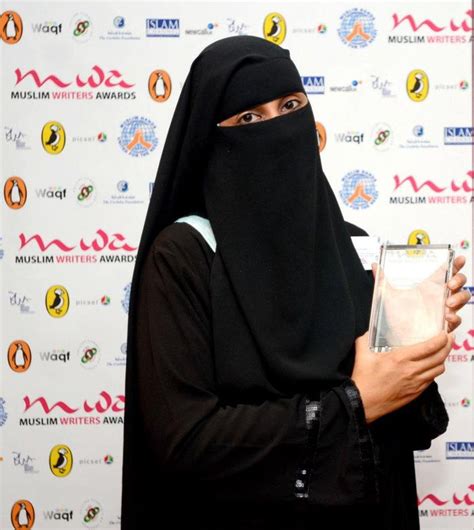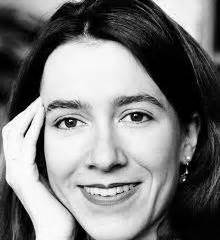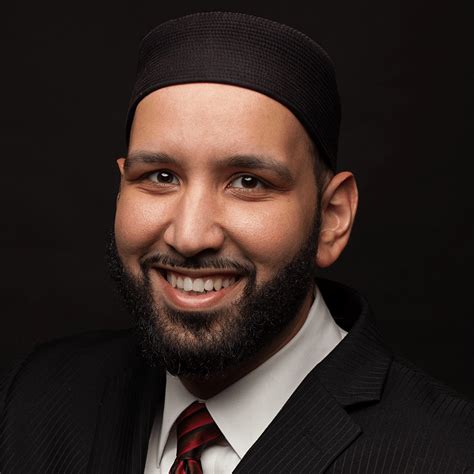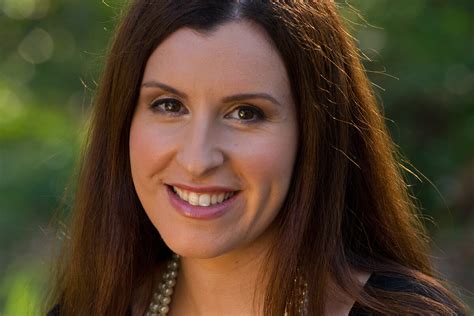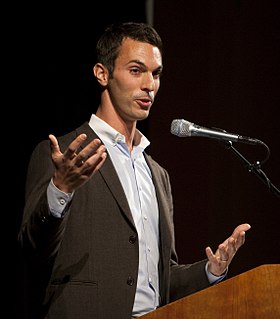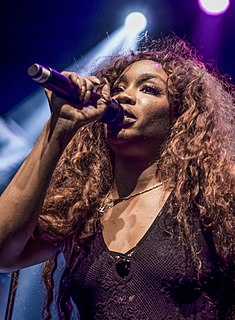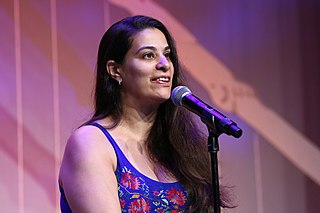Top 52 Hijab Quotes & Sayings
Explore popular Hijab quotes.
Last updated on November 13, 2024.
Flying while Muslim is nerve-racking in itself. Every time I prepare to fly, I have to make sure the anxiety I feel from all the stares I get from the moment I walk into the airport doesn't show on my face. This is what every woman in a hijab or bearded Muslim man experiences. But we are not alone: Sikh men who wear a turban experience the same anxiety because they encounter Islamophobia by dint of being perceived as Muslim.
What crystallized the importance of speaking out like that - of making nonviolence not just a tool or a tactic, but a way of life - was in San Diego [at Comic-Con]. One of the young girls who marched with us was wearing a hijab, and she came up to me afterward because I talked about my beard, and I talked about why I was doing it, and she came up and she gave me a hug, and she was crying. And she said, "Thank you. You have no idea how the other students treat me because they're shown that this is OK by Donald Trump. Thank you for speaking out."
In practice, you realise that most attempts to feed your baby in a public space will be met with subtle but palpable resistance. Older chaps roll their eyes, slick young businesswomen purse their mouths, teenagers look disgusted, waitresses anxious. But it strikes me as ironic that many members of the public fret about British Muslims donning the hijab, yet happily condone the veiling of nursing mothers.
I see certain parallels between the debate over feminism where some women argue that women should not be forced to stay at home and take care of children [and debate about hijab]. And there are other women who are saying you are criticizing my decision as a free liberated women to stay home and take care of my children.
The hijab or a variation of the word shows up eight times in the Quran. And it never means headscarf. And so what's happened is that the identity of a Muslim woman especially is being equated to this piece of cloth on her head. And in that ideology there's a very fundamental assumption that people need to think very deeply about, which is do you believe that a woman is too sexy for her hair?
A lot of people had a misconception that I would be the perfect poster child for Islam. So I got a lot of Instagram comments like, 'Oh, you don't have your neck covered, you're not a Muslim!' My thing is, stop judging women, especially if you're a man, because you don't know the responsibility that comes with wearing a hijab.
I am against revolution and am proud of it. Democracy cannot be created through revolutions. The most important dichotomy that I make for a society is between those who support democracy and human rights, and those who oppose it. In a totalitarian state, the state views any act of an individual to be political in nature. For example, the clothing that a person wears in a modern state is a private affair whereas in the Islamic Republic all women are forced to wear the hijab (Islamic attire). When women push their headscarf back an inch or two, this is interpreted to be a political act.
I was born in 1965. When I grew up in India, there was no expectation that a good Muslim woman wore the headscarf. But what happened when I came here to the U.S. and the emergence of the Saudi and Iranian theologies in the world is that the headscarf became the hijab and the hijab is now the idea that is synonymous with headscarf.
